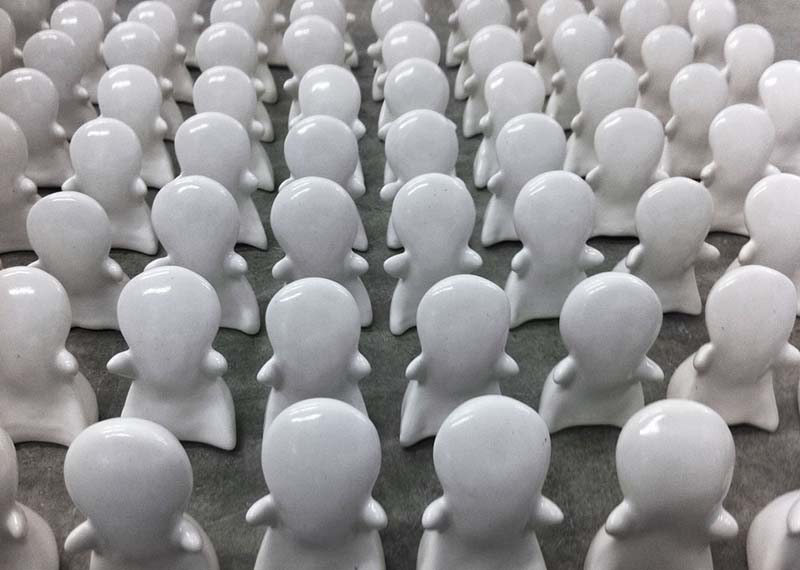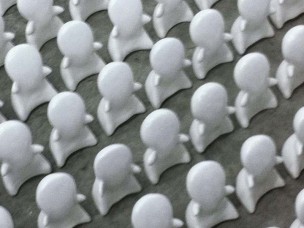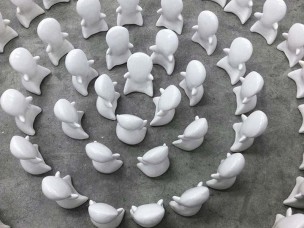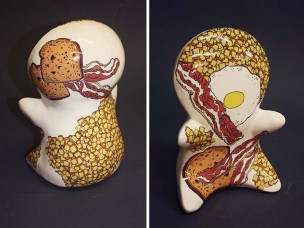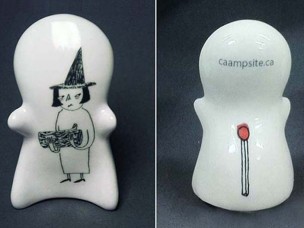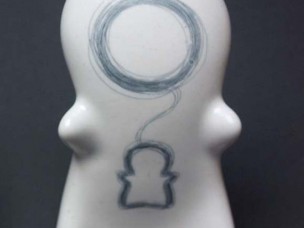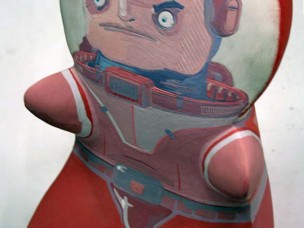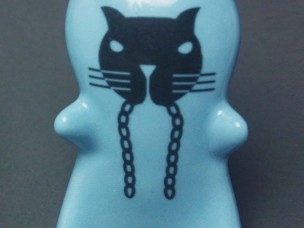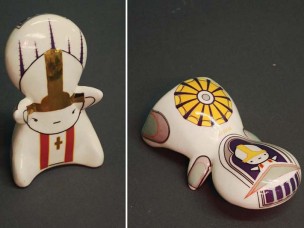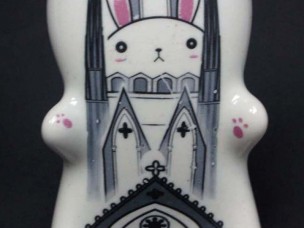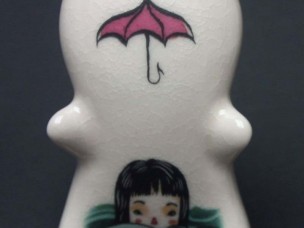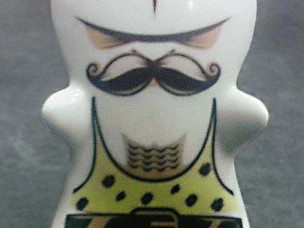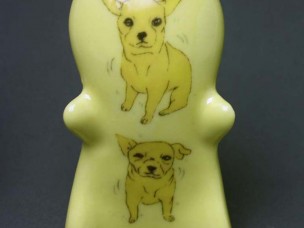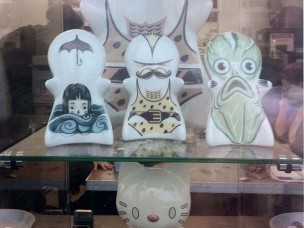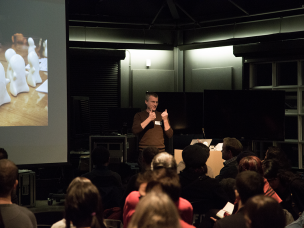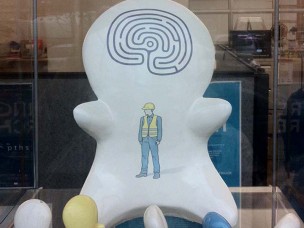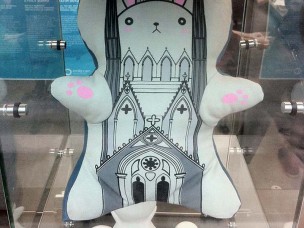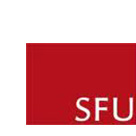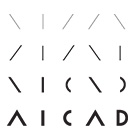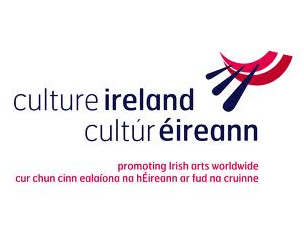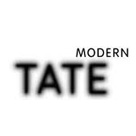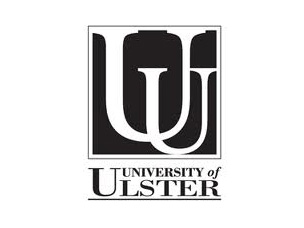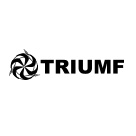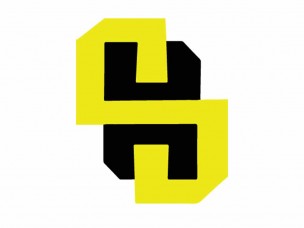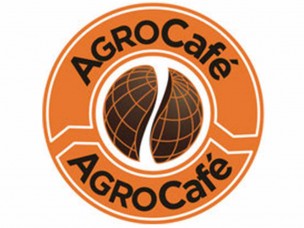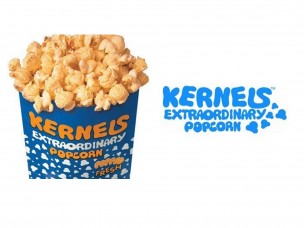DARWIN is a project that celebrates the slippage between form, surface, and identity. Collaboratively designed and produced by students and faculty of the Illustration program at Emily Carr University, it employs industrial ceramic processes but adopts the aesthetics and collaborative dynamics characteristic of the explosive “Urban Vinyl” subculture. As a generic figurative form that lacks detail and invites transformation through surface design, Darwin appropriates the strategy of the designer toy “platform”, popularized by Toy2R’s Qee and KidRobot’s Dunny. Unlike the vinyl toys that inspired them, the Darwin figures are conceived and presented as an inquiry– an invitation to investigate our adaptive and/or conditional nature. Though the project employs a formal vocabulary derived from plastics and animation, a much older lineage of allegorical figuration is evoked by its translation into ceramic material.
The project aims to investigate how the collective and potentially disparate concerns of a group (in this case, a group of researchers) might be manifested symbolically or allegorically. This research project centers on how a collection of objects can communicate through their interrelation; a collection that does not strive for clarity or fixed meaning, but rather aims to act as a multiplicity of ciphers or intuitive triggers through which we might continuously revisit the complexities of a given question.
Process
The glazed ceramic “blanks” provide an ideal opportunity for collaborative experimentation tied to the conference. Like his namesake, Darwin is all about adaptation. Any image can be translated into surface design, then be applied and kiln-fired onto the form with specialized ceramic decals.
For more information on the Darwin project, visit the Centre for Applied Arts and Material Production (CAAMP) blog at http://blogs.eciad.ca/caamp/. Emily Carr University’s new Centre for Applied Art and Material Production (CAAMP) is an initiative dedicated to cultural inquiry regarding the contemporary circulation of images and objects. CAAMP proposes to participate in the upcoming Re/Search symposium with an experiment in the production of knowledge through the collaborative design and manufacture of objects, with the added challenge of integrating academic investigation with the mass appeal of collectibles, character design, and the entertainment industry.
The DARWIN platform was collaboratively conceived in 2011 by a creative team comprised of: Brad Allen / Dianne Almond / Hae Jin An / Cathleen Chow / Hyun Chung / M.J. Hur / Mark Illing / Ainsley Jasper / Pierce Jordan / Soo Min Lee / Nicole Majcher / April Milne / Jieun Min / Justin Novak / Joanne Oh / Philip Robbins / Sterling Richter / Jen Uy / Alison Vogelaar / Emma Walter
